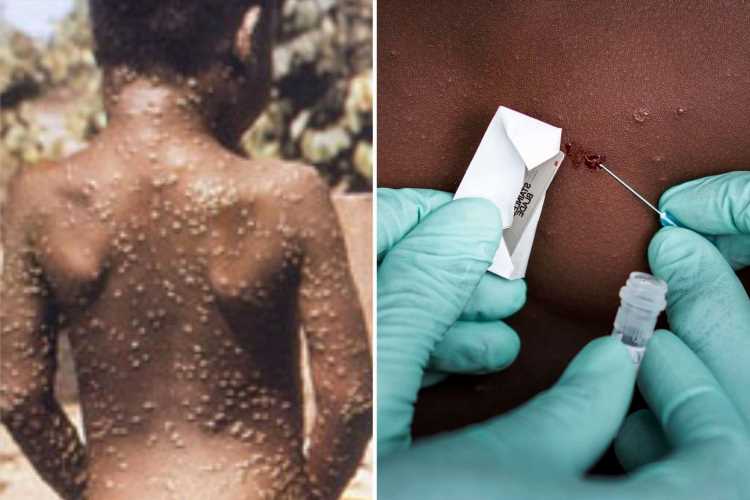THE CDC has said it is contacting passengers on board a flight with a US resident who later tested positive for monkeypox.
The unidentified person, who returned from a trip to Nigeria this week, is the first confirmed case of the virus in the US for two decades and is currently being treated in hospital in Dallas.
Health officials are now working to contact passengers who would have been on flights with the patient but they believe the risk of transmission is low.
The individual is believed to have taken one on July 8-9 from Nigeria to Atlanta and the second on July 9 from Atlanta to Dallas.
In a statement the CDC said: “Travelers on these flights were required to wear masks as well as in the U.S. airports due to the ongoing COVID-19 pandemic.
"Therefore, it’s believed the risk of spread of monkeypox via respiratory droplets to others on the planes and in the airports is low.”
Monkeypox is considered a rare disease that can cause widespread rashes, fever, headaches and muscle aches in people who contract it.
"While rare, this case is not a reason for alarm and we do not expect any threat to the general public," Dallas County Judge Clay Jenkins said in a statement.
According to WHO, the monkeypox virus has similar features to the more dangerous human smallpox.
There are two types of monkeypox viruses – the more contagious and harsher version from Central Africa and the other from West Africa.
It was discovered in 1958 after two outbreaks mirrored pox-like disease in monkey colonies that were being held for research – hence the birth of its name "monkeypox."
In the case of the sick Texan, the stain of monkeypox is the milder West African strain, the Centers for Disease Control and Prevention (CDC) said in a statement on Friday.
And while monkeypox is much milder than smallpox, it can be fatal.
NO MONKEYPOX CURE
It has a mortality rate of between one in 100 people, with most deaths occurring in younger age groups.
Death is more probable if the person is stricken with a weak immune system.
Perhaps most critical is that there is no current cure or proven, safe treatment for monkeypox virus infection.
That’s largely in part because the vaccine to treat the disease is off-limits to the general public, as it was discontinued after global smallpox eradication.
Still, when the vaccination was used against smallpox it was been proven to be 85 percent effective in also warding off monkeypox.
Human cases outside of Africa number only half a dozen times.
The last time the US confirmed a monkeypox case was back in 2003 with 47 infections, according to the CDC.
The county’s top health official Dr. Philip Huang also urged calm.
We have determined that there is very little risk to the general public.
He noted that interviews had been conducted with the patient and “close contacts that were exposed.”
“We have determined that there is very little risk to the general public,” he said, noting that the Delta Airlines flights employed a mandatory mask policy for passengers and crew.
“Therefore, it’s believed the risk of spread of monkeypox via respiratory droplets to others on the planes and in the airports is low,” the Dallas County statement read.
Dr Huang admitted there are consequences if protocols and safety measures aren’t being respected or implemented.
“This is another demonstration of the importance of maintaining a strong public health infrastructure, as we are only a plane ride away from any global infectious disease.”
Health officials have isolated the patient at a Dallas hospital while recovering from the disease, Dallas County Health and Human Services officials said.
More recent cases of monkeypox were found in 2018 when the UK counted three cases and Israel documented one case.
Singapore marked the only location outside the large continent to record a case in 2019.
Already in 2021, the UK confirmed three cases.
Monkeypox is contracted whenever humans come in contact with an animal (and particularly a rodent), dress wild game or it can infect people who use animal products.
In Africa, human infections have been documented through the handling of infected monkeys, Gambian giant rats and squirrels.
Like Covid-19, human-to-human transmission is suspected of occurring through large respiratory droplets, according to the CDC.
The disease is known to also spread when there is contact with body fluids, monkeypox sores, or items that have been contaminated with fluids or lesions, such as clothing and linens.
Source: Read Full Article










